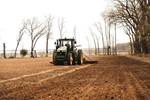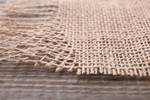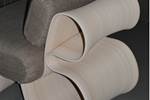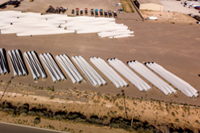University of Bristol studies mycelium composites as alternative building materials
Affordable, lightweight and sustainable composite materials made from mycelium — mushroom roots — may have potential for packaging materials, insulation panels, floor tiles and furniture.
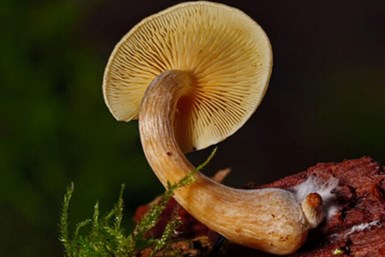
Source | The University of Bristol
A research team from the University of Bristol (U.K.) has suggested that mycelium composites could offer a sustainable alternative to traditional building materials and help address socioeconomic and environmental challenges.
In a paper published in the journal Advanced Sustainable Systems, lead author Stefania Akromah, a PhD student in the Centre for Doctoral Training in Composites Science, Engineering and Manufacturing, suggests that while holding a lot of potential benefits, mycelium composite technology has yet to become established.
Mycelium composites are a class of materials based on mycelium — the roots of mushrooms. These materials, which have gained popularity in Europe and the U.S. in the past decade, are produced by harnessing the ability of fungi to grow by feeding on organic biomass — eliminating the need for high-end manufacturing processes. In fact, mycelium composites can be grown almost anywhere — even at home — without the need for extensive expertise or advanced equipment.
The organic biomass used for the basis of mycelium composites are often obtained from agricultural, agro-industrial and forestry waste streams. There is a wide range of applications for mycelium composites, including packaging materials, insulation panels, floor tiles and furniture.
Mycelium composites are also envisioned as the “next generation of self-healing and self-growing” structures in construction. This can be achieved due to the ability of fungi to respond to light, chemicals, gases, gravity, electric fields and mechanical cues.
Akromah’s paper suggests mycelium composites can add value to agricultural waste, potentially offering an incentive for investment in the agricultural sector and increasing productivity. Mycelium composite production could also serve as a greener waste management route not only for agricultural waste, but for plastics and other carbon-based waste materials too.
The next step for the authors — Akromah, in addition to Dr. Neha Chandarana, lecturer in sustainable composite materials, and Steve Eichhorn, professor of materials science and engineering — is to fine-tune the properties and production of mycelium composites in order to facilitate the integration of this technology with well-established practices in diverse developing countries.
Related Content
-
Why aren't composites synonymous with infrastructure?
The U.S. seems poised to invest heavily in infrastructure. Can the composites industry rise to the occasion?
-
Materials & Processes: Fabrication methods
There are numerous methods for fabricating composite components. Selection of a method for a particular part, therefore, will depend on the materials, the part design and end-use or application. Here's a guide to selection.
-
Plant tour: Dowty Propellers, Gloucester, U.K.
Transforming decades of design and RTM production reliability into more sustainable, next-generation composite propellers.


